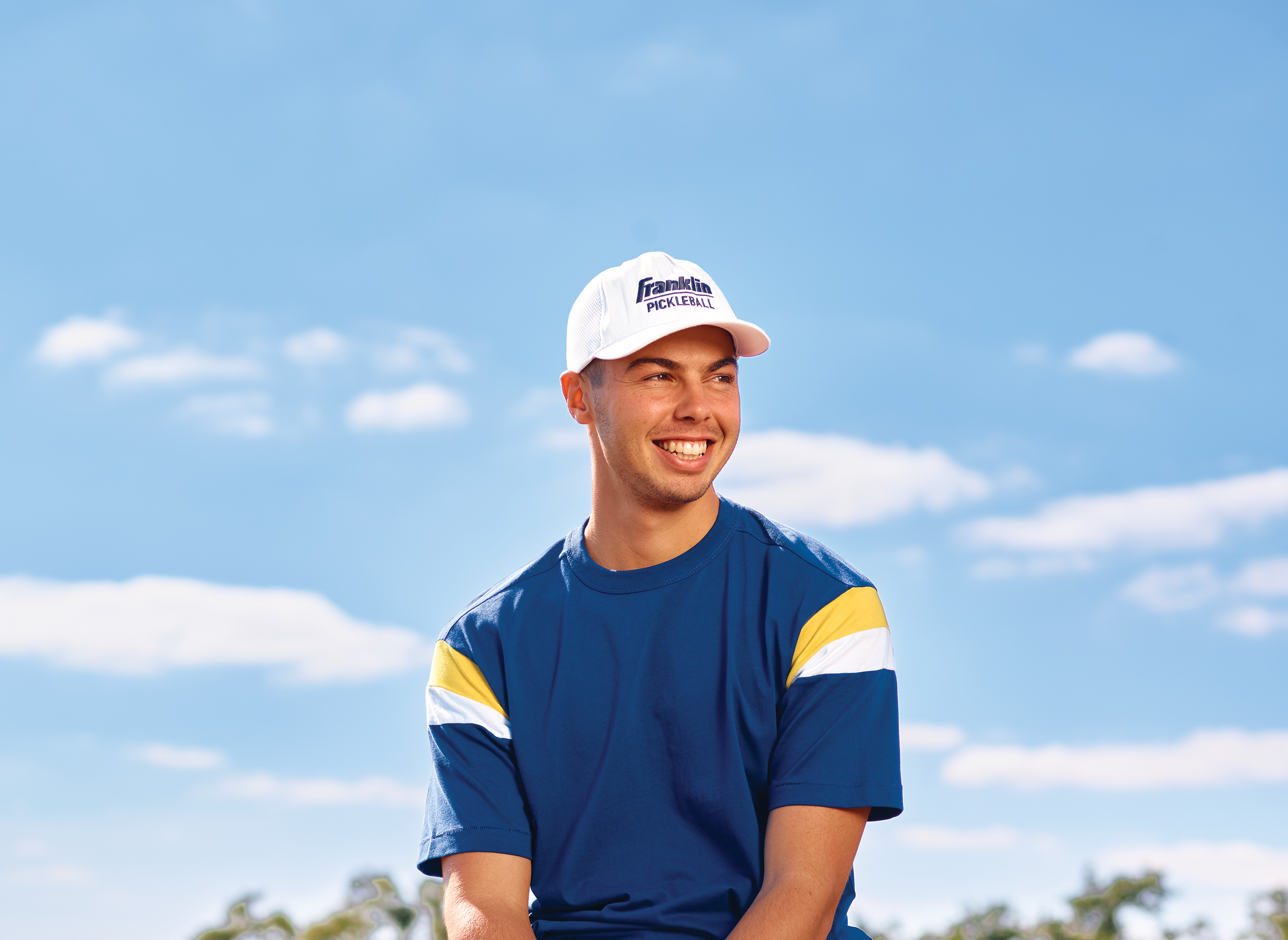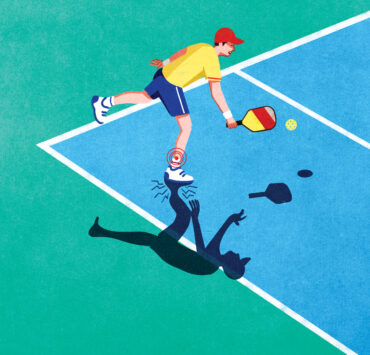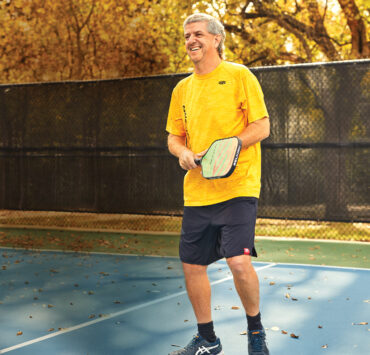ON A WARM THURSDAY morning in late October, a crowd of pickleball enthusiasts gathered on the outskirts of Las Vegas to see Ben Johns, the sport’s No. 1 player, take on Zane Navratil in the PPA Championship tournament semifinals. Though Navratil, then ranked third, can be a tough opponent, many expected the 22-year-old Johns to march toward yet another title.
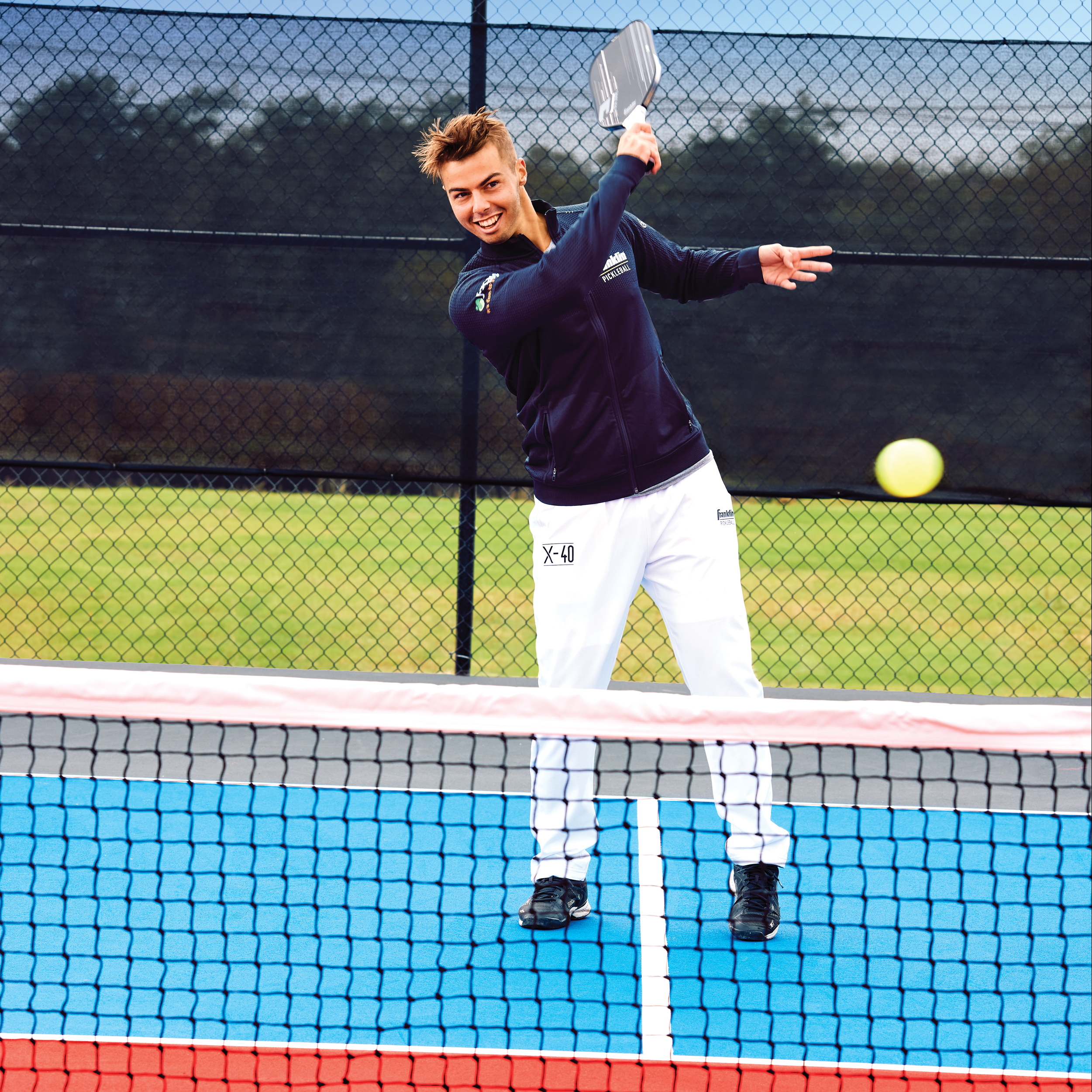
But almost from the beginning, something seemed off, and the crowd began to sense an upset in the making. “Ben might go down!” one spectator exclaimed to his wife. “He’s not looking good.”
And indeed, Johns would go on to lose to Navratil by a score of 11–6, 11–8, afterward slumping in a courtside chair, his gray-and-white Franklin outfit soaked with sweat, a pensive-looking Johns taking in what had just happened.

After all, this was a player who had won a record-setting 170 matches in a row, has captured roughly 40 pro championships, and was then ranked number one not only in men’s singles but also in doubles and mixed doubles, firmly establishing himself as the sport’s most feared player. And to everyone’s further shock, he would lose twice more in the coming days. First in mixed doubles, when he and his partner, Simone Jardim, who was playing through injury, lost in the quarterfinals, a match in which he acknowledged his low energy. In his men’s doubles loss with Matt Wright, he felt he and his partner had gotten “lackadaisical” when they had an early lead.
When Championship Sunday began, it did so without Johns playing for gold in any of the three finals.
A few days later, Johns was philosophical about the loss to Navratil: “You know, he’s a big hitter, and usually he tends to miss more. I just don’t think I converted on some of my opportunities when I had the chance,” he said, adding, “It’s just like any other sport: Sometimes people play well, and other times people play bad. The right combination is hit, and that causes upsets.”
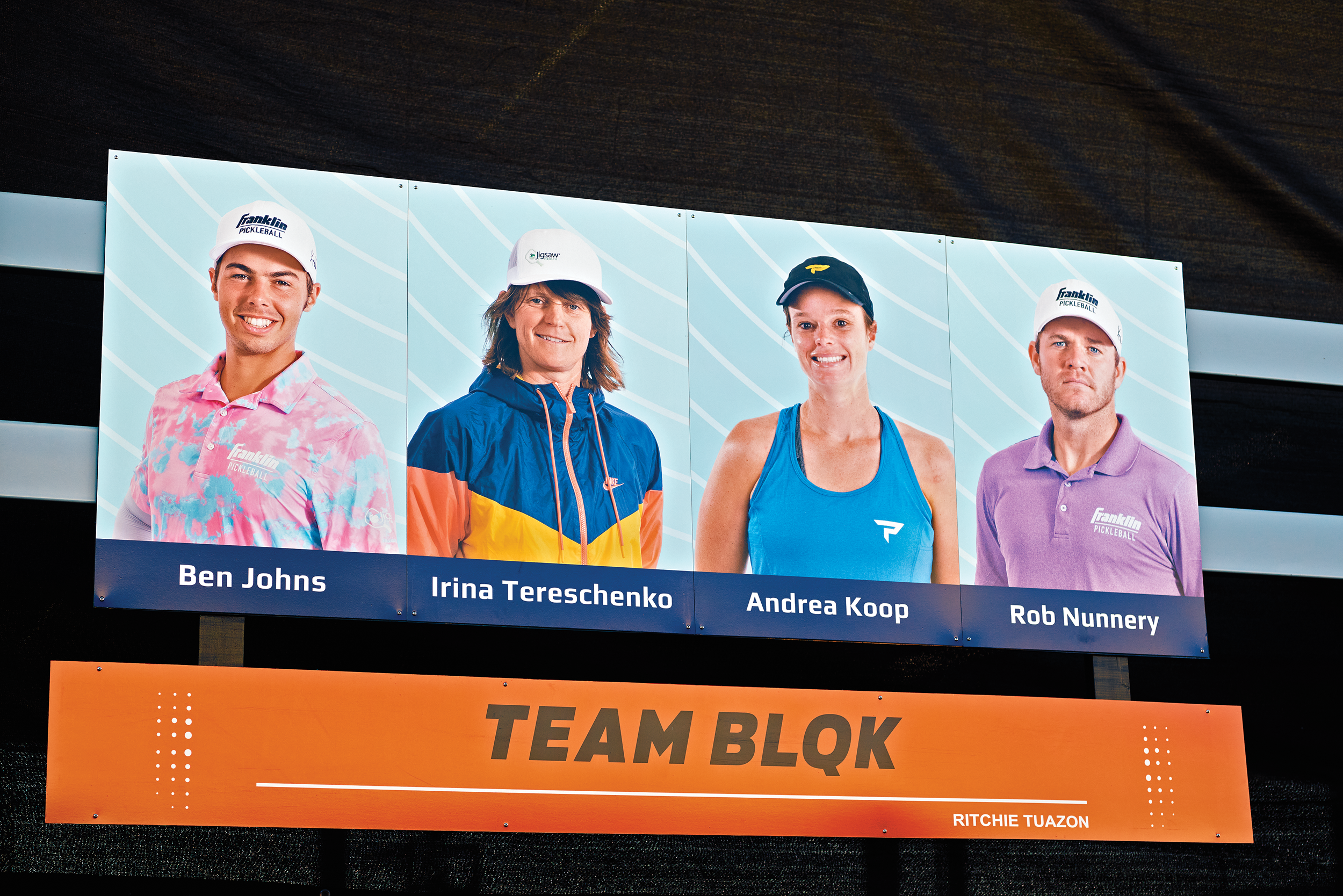

A week before the Las Vegas tournament, shortly before a strenuous practice session, Johns sat down for an interview outside a Starbucks in suburban Maryland, his current home base.
“While making a GPA of 3.8, he has managed to dominate pickleball and be the face of the sport…. This is exceptional of him,” noted his brother Collin.
He talked about the building pressure of being the top-ranked player in the world—especially one juggling the demands of being a pro athlete while still a full-time student. (Johns is a senior at the University of Maryland, majoring in materials science at the school of engineering. He will graduate in the spring.)
This past fall, as he returned to in-person classes after more than a year of a pandemic-mandated virtual education that mirrored the homeschooling years of his youth, he also had to travel to tournaments almost every other week—where he and everyone else expected him to do only one thing: win.
“It definitely takes its toll,” Johns said. “I feel like the last two tournaments haven’t been as good as I want them to be simply because I was doing so much. I’ve been traveling. I’ve been studying, doing work. It gets to be a lot.” He added, “I’ve got to better manage my time.” (Johns plans to move to Austin, Texas, after graduation and devote himself to his playing career.)
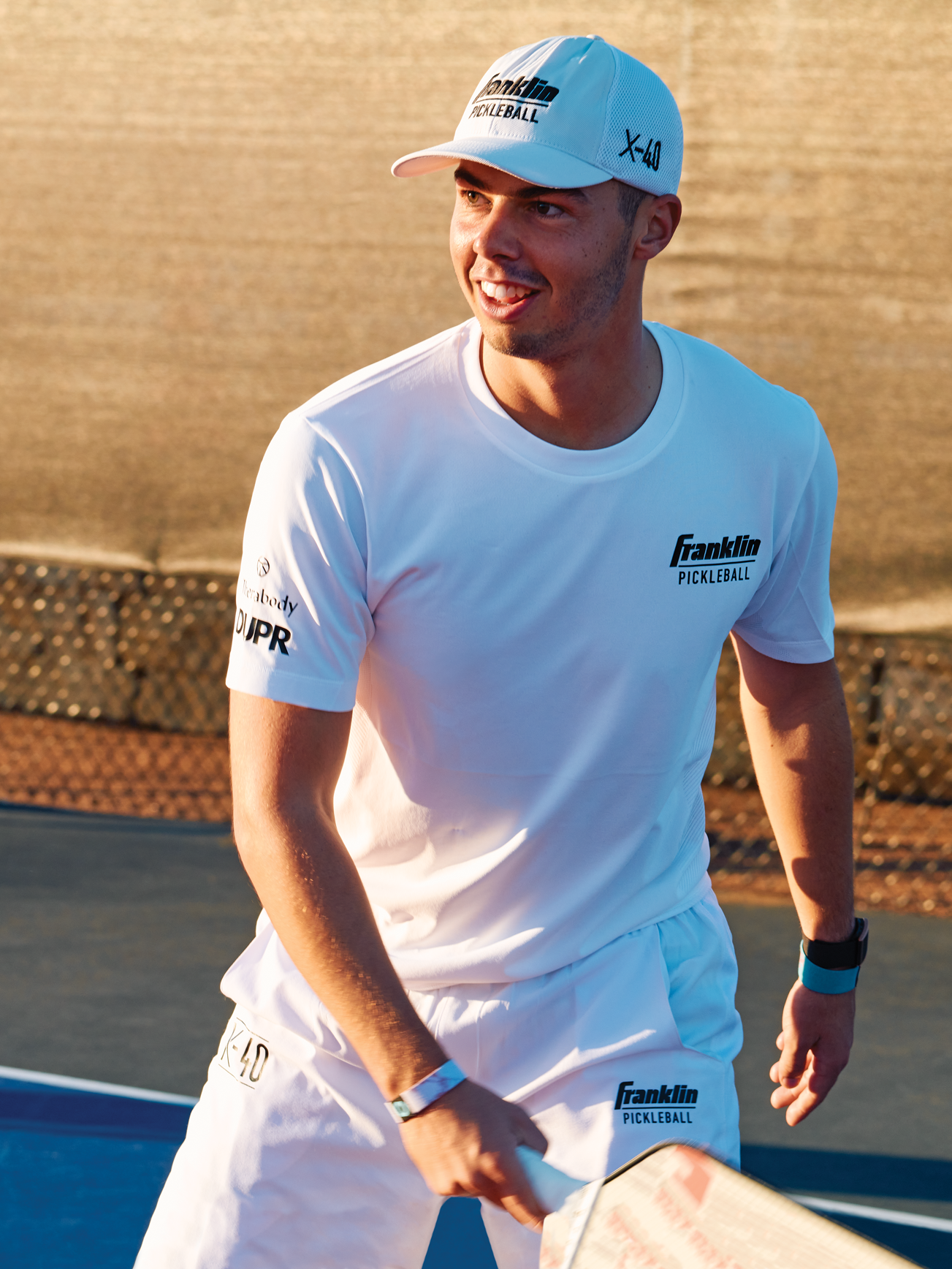
His brother Collin, himself a highly ranked player, agreed that Johns’s juggling of school and sport had clearly had an impact. “This is something that is definitely overlooked in my opinion,” Collin wrote in a recent email. “While making a GPA of 3.8, he has managed to dominate pickleball and be the face of the sport and for that of his sponsors. This is exceptional of him, especially when he could have very easily dropped out of college to pursue pickleball.” Collin added, “I am very proud of how he has handled so much at such a young age.”


All this comes at a critical time for both Johns and the sport of pickleball. Steve Kuhn, the founder of MLP, and some other powerful backers, including the Hollywood agent Jim Toth (the husband of Reese Witherspoon), the best-selling author Brené Brown, and the retired tennis star James Blake, have collaborated with a number of other high-profile investors to form Major League Pickleball, which debuted this past fall. Johns was the first male player chosen in the MLP draft and the second player overall, joining forces with a trio of formidable fellow players (Irina Tereschenko, Andrea Koop, and Rob Nunnery) to form a team called BLQK. (BLQK —pronounced “black”—is the name of the Black-owned coffee company that sponsored the team.)
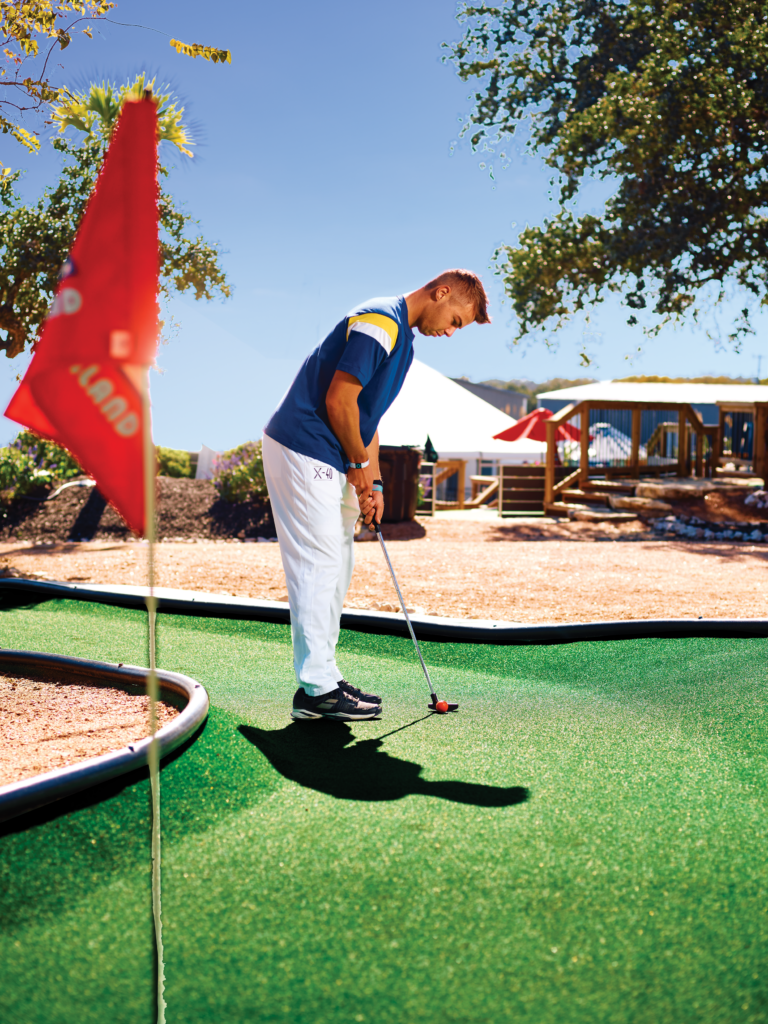
mini golf. Shirt by “BP.”
At the draft, held in early October, Johns was clearly the marquee name, having just been the featured match when the Tennis Channel aired its first-ever pro pickleball tournament, in September—and his boldness only grew in the following weeks with publicity that included an appearance (along with Collin) on the top-rated morning talk show Live with Kelly and Ryan, where he taught the hosts, Kelly Ripa and Ryan Seacrest, how to play pickleball. In a recent Vanity Fair article about the sport, writer Craig Coyne noted of Johns, “his greatness feels effortless” and compared him to Roger Federer and Lionel Messi.
Almost every sport needs a breakout star, one who transforms it from a pastime followed by a passionate minority into something that transcends sport itself and enters the popular consciousness. It was what Tony Hawk did for skateboarding, what Shaun White did for snowboarding, and what Tiger Woods did for golf, making tournaments must-see Sunday afternoon TV even for people who had never picked up a club.
And while there are other rising stars in the game, such as the teenager JW Johnson, who ended Johns’s record-setting winning streak, as well as Navratil (who would go on to win the Las Vegas tournament) and Jay Devilliers, and female players, like Catherine Parenteau and the 14-year-old phenomenon Anna Leigh Waters, both of whom are beginning to gather their own large followings, for now many of the major players in the sport seem to be betting on Johns to be their first real breakout star.
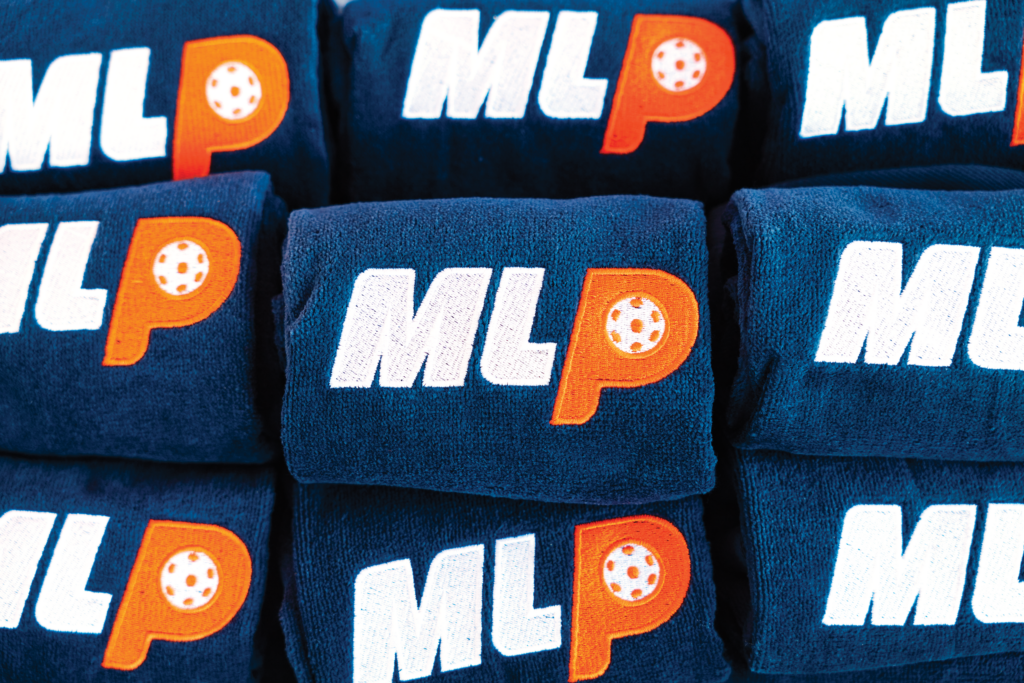
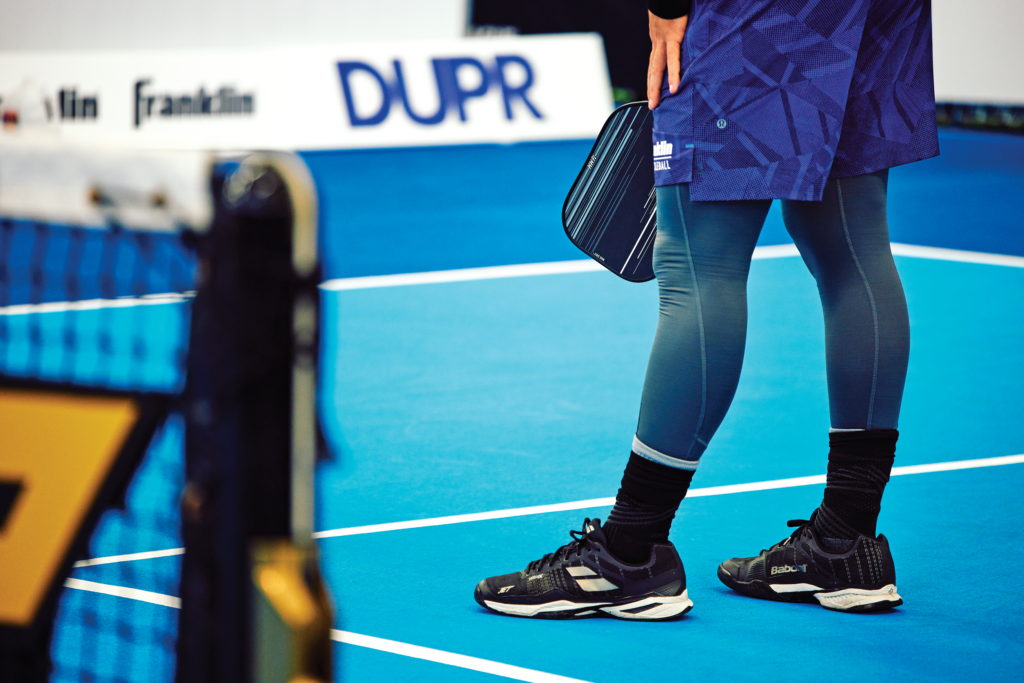
Ritchie Tuazon, who drafted Johns for the BLQK team, said of him, “I think that if you were to list five factors that would make someone the figurehead of the sport, overall talent would be the number one factor. And he clearly has that.”
Almost every sport needs a breakout star, one who transforms it from a pastime followed by a passionate minority into something that enters the popular consciousness.
And despite the pressure, Johns said, he has begun to embrace the spotlight that comes with being the sport’s top player. “I mean, it’s cool,” he said. “Not many people get an opportunity to be on the forefront of a sport, whether it’s, you know, being the best at it, or any real powerful position, or to represent a sport. So it’s a responsibility, which I enjoy. Yes, it’s nice.”
At the inaugural MLP tournament, a round-robin competition held in Dripping Springs, Texas, in early November, Johns had a strong return to form, leading his team to a 6–1 record and convincingly winning both his matches in the Monday night finals against Team Chimeras—consistently pulling off shots that had the commentators at CBS Sports raving about his skill and court intelligence. (A week later Johns would win both the men’s singles and the men’s doubles titles at the year-ending PPA Masters tournament in La Quinta, California, solidifying his ranking as the No. 1 pro player in the world.)
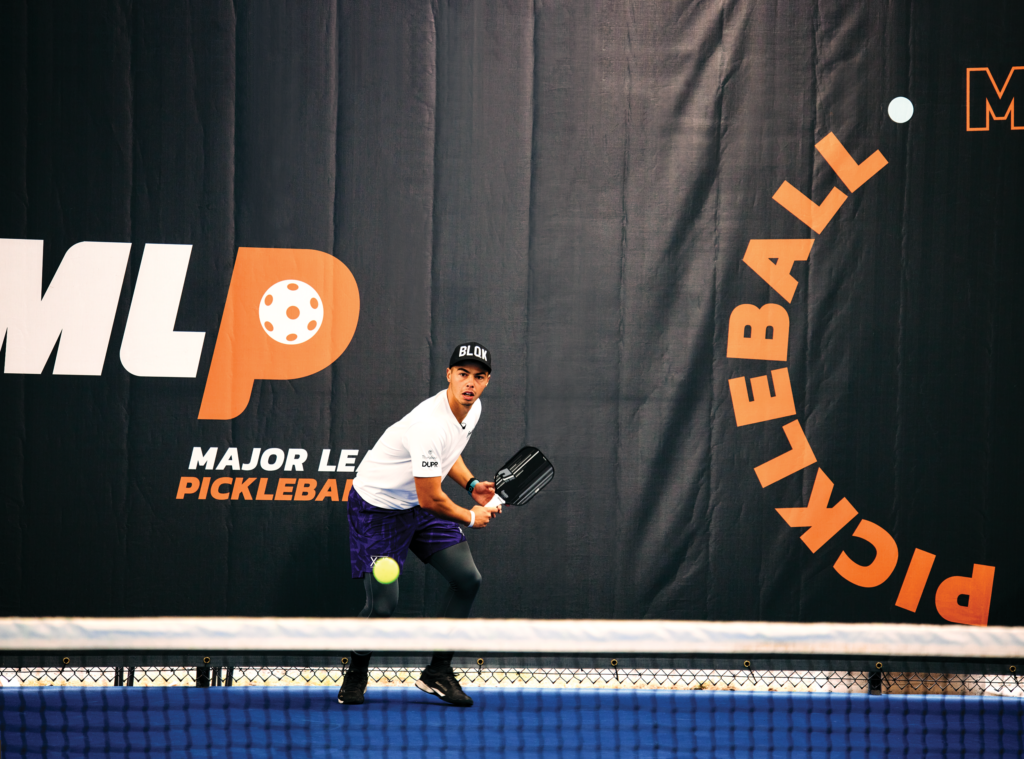
BEN JOHNS WAS JUST A KID of 16 in 2016 when he picked up a paddle for the first time, on his family’s annual winter pilgrimage to Florida, only to place fifth in singles at the US Open months later. He was the player who, with more serious training and experience, returned to the event the following year as a senior in high school, this time winning gold. He was the player who added a dimension of athleticism and thinking to the sport.
“Even when not playing well,” Hannah Johns (another of Ben’s six siblings and herself a commentator for the sport) said of her brother, “he’ll still outmaneuver you. He’ll out-strategize you. He’s thinking six, seven shots ahead.”
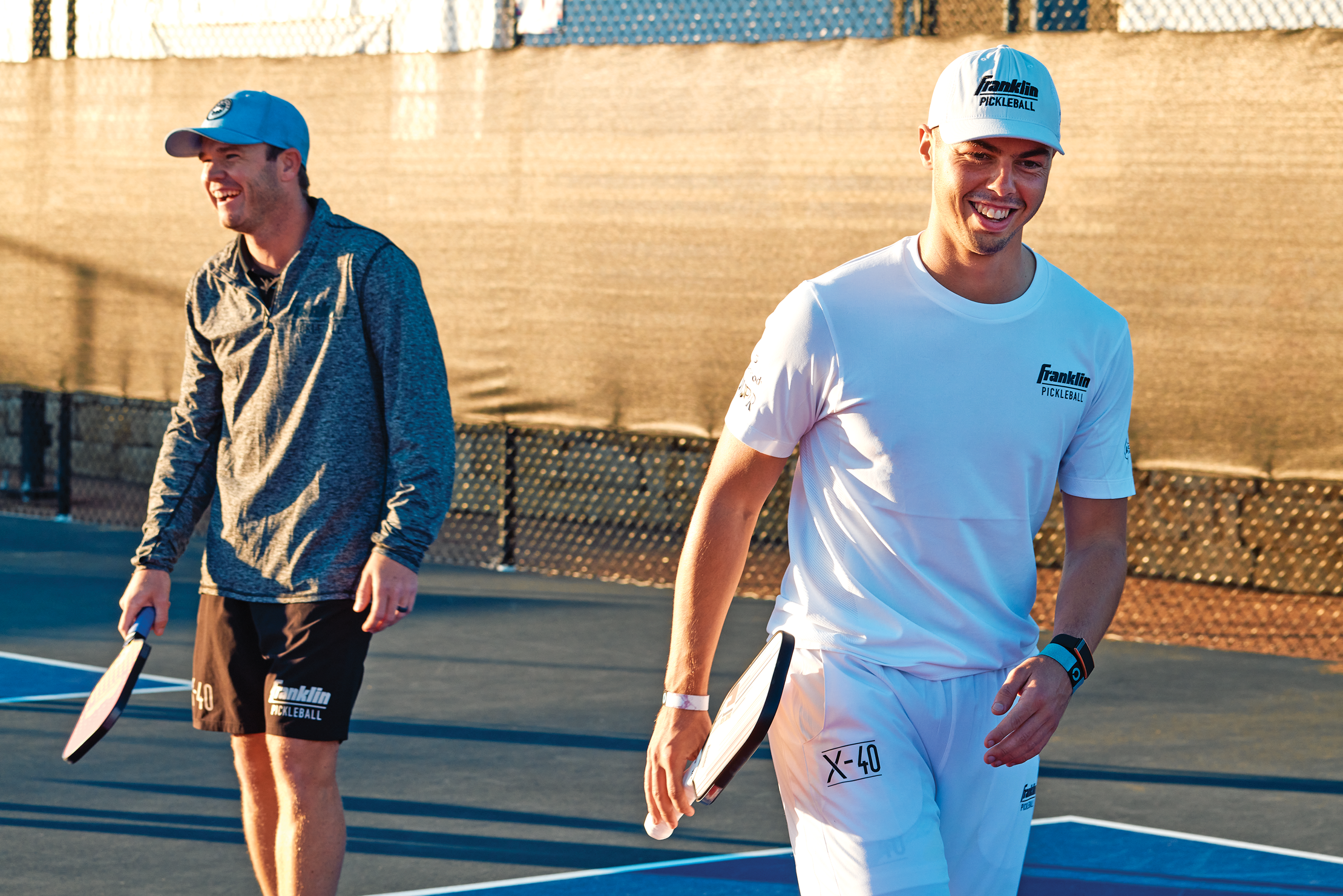

His success was never just about physical skill. As Johns—who also excels at chess and participated in Magic: The Gathering tournaments as a kid—spent time with better players, he took notice of everything he liked and disliked about their games. Johns acknowledges that from the start he seemed to have an edge that other beginning players did not. “I was very much a visual person who would watch other things, imitate it, and then adapt from there,” he said.
“Like, say, at the first US Open, I watched enough players that were better than me so that it would be, like, Okay, I want that shot, and I want that shot, and I want this at this time. It didn’t end up exactly like [their shot] but ended up as something new that I wouldn’t have done otherwise.” Moving forward, he turned each practice into a research-and-development session, building an arsenal of shots, including many that no one had ever seen.

Even so, he was a little surprised by how well he did in his debut on the big stage. “I basically went into that tournament completely blind,” he recalled. “I was like, Hey, everyone could be terrible and I might do really well, or everyone could be way better than I thought and I could lose first round and that would be it.”
“There are a lot of players out there that have fantastic physical attributes and perhaps better physical attributes than him,” said Morgan Evans, the professional player and color commentator, who has watched Johns evolve into the top-ranked player he is today.
“But the rest of us are still playing catch-up in terms of how he sees the game, makes good decisions on the court. If he just had the physical skills alone, it just wouldn’t be the same.”
Thomas Shields, founder of The Dink website and cohost of a popular podcast called PicklePod, said of Johns, “It’s clear that he sees the game in a different way. And he’s a few moves ahead of anybody else. When I’ve played him, I’ve noticed that just from an athletic perspective, his hands are insanely fast. His reflexes are unbelievable. So you’ll nail the ball at him, to the side of him, you’ll have a whole open court, you’re going to hit a winner, and somehow he’s able to get it back over.”
The young player’s star potential was clear when Johns sat down with Franklin Sports to design a paddle—now the Ben Johns paddle—in 2018. The company, like Johns, had entered the world of pickleball just two years earlier. Franklin had already signed both Aspen Kern and Christine McGrath to endorsement deals for its X-40 ball. Now it targeted Johns, inviting him to join what the company’s president, Adam Franklin, calls the Franklin family.
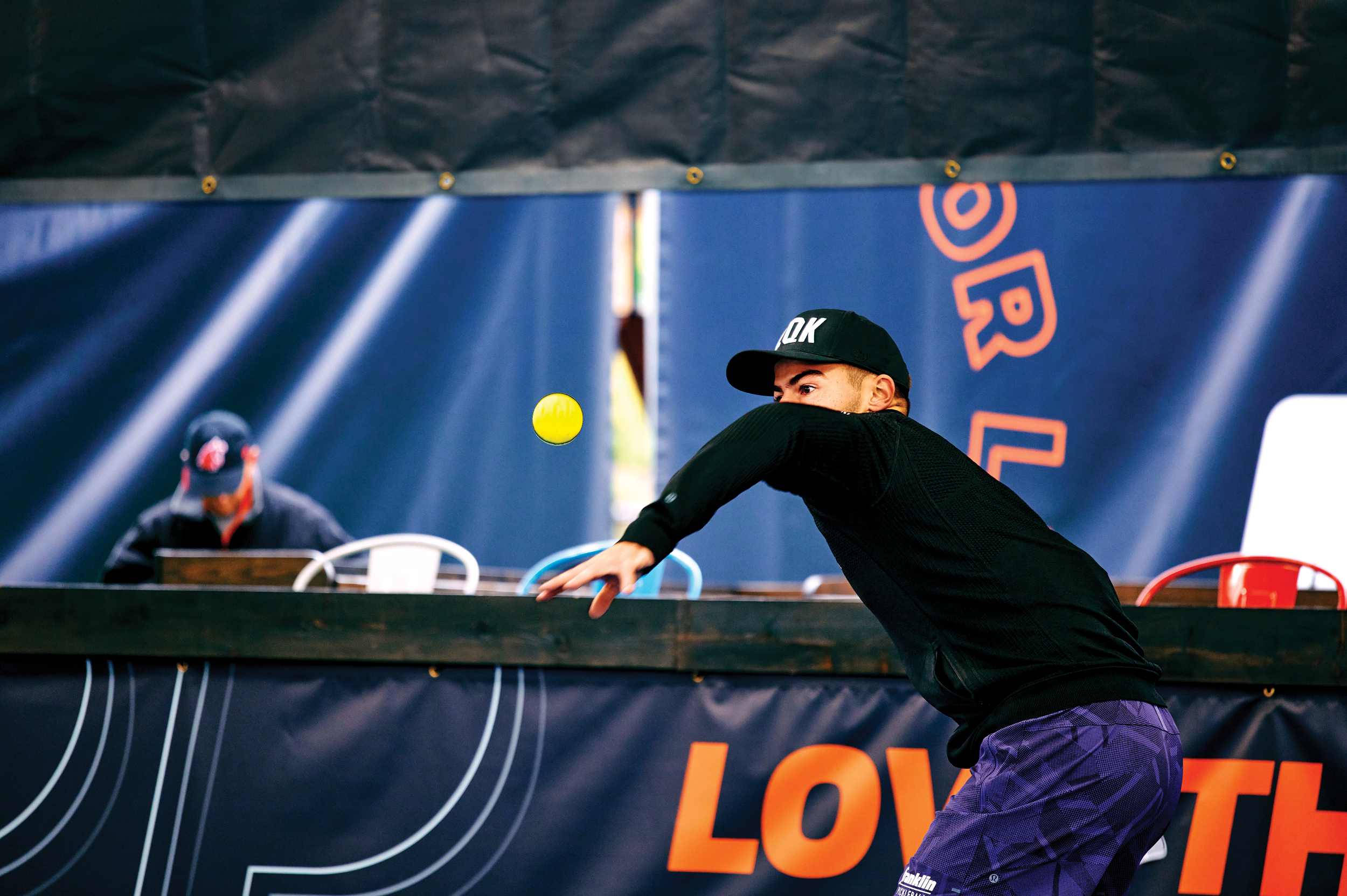
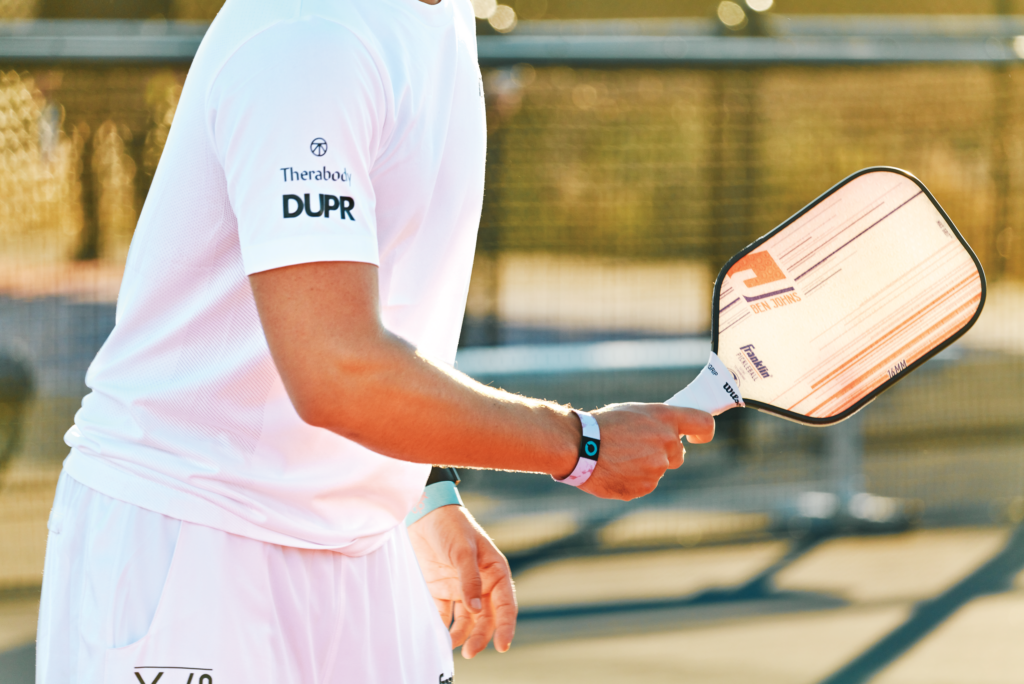
To Adam Franklin, that moment was reminiscent of an encounter four decades earlier, when his grandfather Irving, cofounder of the company in 1946, sat down with a future Hall of Fame third baseman for the Philadelphia Phillies.
“My grandfather went down to spring training and met with Mike Schmidt,” Franklin recalled in a recent phone interview. “He basically said to Mike, ‘We want to work with you, we’ll build you the best batting glove possible.’ And Mike was super vocal, and he helped us build the brand within baseball. At the 1983 All-Star Game, Mike Schmidt handed out our batting gloves to every single All-Star in the locker room. And they all started wearing them. So it was a super important piece of how we built out the batting glove business. And we want to take the same approach with Ben.”
Like many sports champions, Johns believes in the philosophy of not looking back—that the key to success is not to dwell on the past but to focus on the future.
And Johns embraced the opportunity, applying his engineering expertise to the project, opting for a nontraditional shape and a longer handle. He wanted “the Ben Johns paddle” to be, well, a Ben Johns paddle. (That paddle was featured during
a match played between cast members on a recent episode of Bravo’s Vanderpump Rules.)
Adam Franklin told Johns they would do everything to build his brand, along with that of Franklin’s. They would put his face and name in front of millions of consumers. They would win together.
“We’ve got a lot of athletes playing and a lot of people playing pickleball; 4.3 million was the last number,” Franklin said. “I want every single one of those four million players to know exactly who Ben is, to know exactly what paddle he uses, to know exactly what type of apparel and shoes he’s wearing. And we’re hoping we can accomplish that with him.”
All of that is ahead. Right now Johns is just doing his best to keep himself at the top of a game that is rapidly changing, with new stars emerging almost every week and the sport getting more exposure than ever before. CBS Sports aired the finals of the first MLP championships on November 8, and Fox Sports recently committed to airing at least 10 pro pickleball tournaments in 2022.
Johns certainly intends to be a key player in the sport’s growth, which involves keeping his focus on his game and not being distracted by the occasional setback.

Like many sports champions, Johns believes in the philosophy of not looking back—that the key to success is not to dwell on the past but to focus on the future.
And given his historic win at the MLP, that future looks bright, for both Johns and the sport of pickleball. “This is surreal,” Johns said as he lifted the Pritchard Cup (named after Joel Pritchard, one of the founders of pickleball) before an enthusiastic crowd in Texas near midnight. Later he spoke about the significance of this moment in the sport’s development.
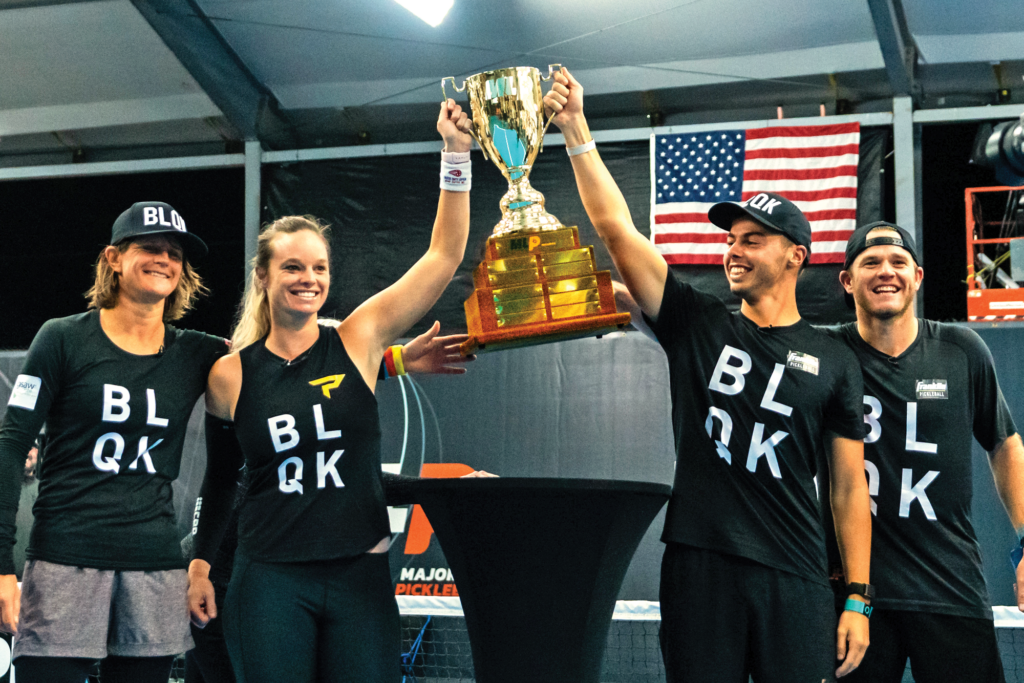
“The sport has grown so fast, so quickly, it’s just incredible to see,” he said. “This is a landmark event, and it means a lot to be a part of history.”

